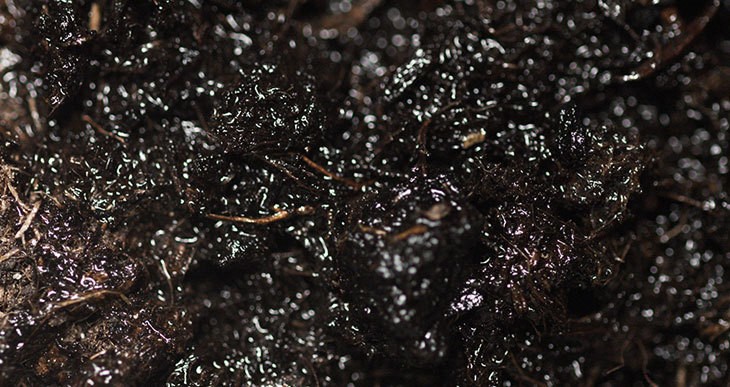Watering compost is an important part of the composting process, and it can significantly impact the decomposition of organic materials. Proper moisture levels are crucial for the microorganisms responsible for breaking down organic matter.
Contents
Here’s what you need to know about watering compost:
- Keep it Moist, Not Waterlogged: Compost should be kept consistently moist but not waterlogged. Excess water can lead to anaerobic conditions and unpleasant odors. The compost should have the moisture level of a wrung-out sponge.
- Aim for Consistency: Try to maintain a consistent level of moisture throughout the compost pile. This ensures that the microorganisms working to break down the organic matter have the right conditions for their activities.
- Monitor Rainfall: If you live in an area with regular rainfall, you may not need to water the compost pile separately. However, in dry or arid regions, or during extended dry periods, you’ll likely need to supplement with watering.
- Use a Hose or Watering Can: When adding water to the compost pile, use a hose or watering can with a fine spray to distribute the water evenly. Avoid pouring water in one spot as it may lead to over-saturation.
- Cover the Compost Pile: A cover or lid on your compost bin can help regulate moisture levels. It will prevent excessive rainwater from entering and help keep the compost pile from drying out too quickly in hot weather.
- Turn the Compost: Regularly turning or aerating the compost pile can help distribute moisture more evenly. It also introduces oxygen, which is essential for the decomposition process.
- Use Fresh Green Material: If your compost pile is too dry, consider adding fresh green materials like kitchen scraps, grass clippings, or fruit and vegetable peels. These materials have higher moisture content and can help balance the moisture in the pile.
- Balance Materials: The mix of brown (carbon-rich) and green (nitrogen-rich) materials is critical in maintaining proper moisture. A balanced ratio (approximately 3:1 or 4:1 brown to green) helps manage moisture effectively.
- Adjust as Needed: The moisture requirements of your compost pile can vary with the weather and the composition of materials. You may need to adjust your watering frequency accordingly.
Remember that successful composting depends on a balance of carbon-rich and nitrogen-rich materials, adequate aeration, and proper moisture levels. Watering your compost is essential to maintain the right conditions for decomposition and to produce high-quality, nutrient-rich compost for your garden.
Compost is an important addition to the garden soil. It contains many nutrients that plants need and provides a healthy microclimate in the soil.
However, compost should not be kept too moist, otherwise it will not decompose properly and form mold. For this reason, compost should be watered only lightly so that it does not become too wet.
Is it necessary to water compost often?
I don’t think it is necessary to water that often. With normal watering, the compost should already absorb enough moisture. However, if the soil is very dry, it may be a good idea to apply some compost to improve moisture absorption.
Composting requires good air circulation to keep the pile from overheating, which leads to excessive moisture retention. Sufficient water is necessary for the natural balance of the material and for adequate bacterial and fungal growth. However, it can also lead to an explosion if insufficiently dry materials are added. Additionally, compost must be applied to the soil to be used so it can properly break down excess waste materials into rich humus. Without water, compost piles can heat up excessively, causing explosions or producing inferior quality compost.
Does water help produce better quality compost?
Yes, water plays a crucial role in the composting process and can contribute to the production of better quality compost. Proper moisture levels are essential for the activity of microorganisms that break down organic matter into compost. Here are some reasons why water is important in composting:
- Microbial Activity:
- Microorganisms, such as bacteria and fungi, are key players in the decomposition of organic material in a compost pile. These microorganisms require water to carry out their metabolic processes.
- Adequate moisture levels help create a suitable environment for microbial activity, ensuring that the decomposition process is efficient.
- Chemical Reactions:
- Water is involved in various chemical reactions that take place during composting. These reactions help transform raw organic materials into stable, nutrient-rich compost.
- Temperature Regulation:
- Composting is an exothermic process, meaning it generates heat. Proper moisture levels help regulate the temperature within the compost pile. The heat generated is crucial for speeding up the decomposition process and destroying weed seeds and pathogens.
- Aeration and Porosity:
- Water helps maintain the right level of aeration and porosity in the compost pile. It allows air to circulate through the materials, preventing compaction and ensuring that aerobic (oxygen-dependent) conditions are maintained.
- If the compost pile becomes too dry, it can impede airflow and slow down decomposition.
- Balancing Carbon and Nitrogen:
- Water is needed to balance the carbon-to-nitrogen (C/N) ratio in the compost pile. This ratio affects the rate of decomposition and the quality of the resulting compost. Moisture helps facilitate the breakdown of carbon-rich and nitrogen-rich materials.
- Preventing Excess Dryness or Sogginess:
- Both excess dryness and excess moisture can be detrimental to the composting process. Excess dryness can slow down decomposition, while excess moisture can lead to anaerobic (low-oxygen) conditions, causing unpleasant odors.
When managing a compost pile, it’s important to maintain the right moisture content, which is typically in the range of 40-60%. You can check moisture levels by squeezing a handful of compost; it should feel like a wrung-out sponge.
If your compost pile becomes too dry, add water during turning. If it’s too wet, incorporate more dry, carbon-rich materials like leaves or straw. Monitoring and adjusting moisture levels will contribute to the production of high-quality compost.


